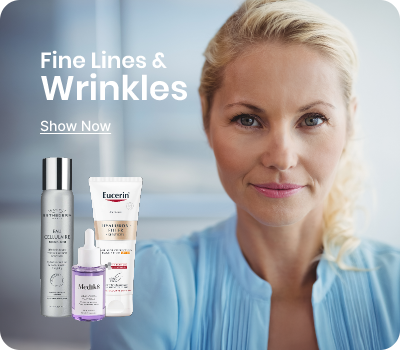
In 2025, the conversation around wellness has undergone a profound and necessary evolution. It’s no longer confined to the metrics of physical fitness, weight management, or even immune strength alone. A new, urgent priority has surged to the forefront of our collective consciousness: cognitive health. This shift is fuelled by a perfect storm of demographic trends, including an ageing global population concerned about neurodegenerative diseases, a workforce battling unprecedented digital fatigue and burnout, and a generation of students and parents grappling with the mental toll of a hyper-connected, high-pressure world.
Amidst this burgeoning focus, the supplement and wellness markets have exploded with promises of a cognitive edge. Nootropic stacks, exotic adaptogens, and smart drugs vie for attention. Yet, through the noise and hyperbole, one family of nutrients consistently dominates the evidence-based dialogue among researchers and clinicians—omega-3 fatty acids. These essential fats are not a passing trend or a fleeting biohack; they are foundational, irreplaceable building blocks of brain structure and function. This article explores why omega-3s continue to top the charts for cognitive wellness and how you can harness their power for a sharper, healthier mind.
The Unbeatable Science: How Omega-3s Power Your Brain
To understand why Omega-3s are so crucial, we need to look at the very architecture of the brain. The human brain is nearly 60% fat, and a significant portion of that fat needs to come from our diet.
Understanding the Trio: EPA, DHA, and ALA
Omega-3s are a family of polyunsaturated fats, but not all are created equal in the context of brain health. The three primary types are:
- Alpha-linolenic acid (ALA): This is the most common omega-3 in the Western diet, found in plant sources like flaxseeds, chia seeds, and walnuts. It serves as a precursor, meaning the body can convert it into the more active forms, EPA and DHA. However, this conversion process in humans is notoriously inefficient, often less than 10%. Therefore, while ALA is beneficial for heart health, relying on it alone for brain support is a flawed strategy.
- Eicosapentaenoic acid (EPA): Known as the "firefighter," EPA's primary role is anti-inflammatory. It circulates in the bloodstream, modulating the body's inflammatory response and producing compounds called resolvins that actively "resolve" inflammation.
- Docosahexaenoic acid (DHA): Known as the "building block," DHA is the structural star of the show. It constitutes over 30% of the brain's cerebral cortex and up to 97% of the omega-3s in the brain. It is literally woven into the fabric of your neurons.
DHA: The Architect of Memory and Learning
DHA's role is profoundly structural. It integrates into neuronal cell membranes, making them more fluid and flexible. This fluidity is critical for the function of neurotransmitters, the chemical messengers of the brain. It enhances synaptic plasticity—the ability of synapses (the connections between neurons) to strengthen or weaken over time. This process is the very foundation of learning, memory formation, and cognitive adaptability. Without sufficient DHA, these membranes become rigid and dysfunctional, hindering communication between brain cells and leading to slower cognitive processing and memory recall.
EPA: The Guardian of Mood and Inflammation
While EPA is also present in the brain, its power is more functional. It exerts immense influence through its potent anti-inflammatory properties. Neuroinflammation—chronic, low-grade inflammation in the brain—is now recognised as a key driver of mood disorders like depression and anxiety, as well as neurodegenerative diseases. EPA directly modulates the production of inflammatory cytokines and eicosanoids, cooling down this inflammatory environment. This action is why higher EPA levels are so strongly correlated with improved mood, reduced symptoms of depression, and greater resilience to psychological stress. It creates a healthy, balanced environment for the brain cells built by DHA to thrive.
2025's Cutting-Edge Research: New Reasons to Prioritise Omega-3s
The foundational science is decades strong, but new research in 2025 continues to reveal even deeper layers of benefit, moving from prevention to potential intervention.
Solidifying the Link to Neuroprotection and Cognitive Longevity
This year, a major meta-analysis published in Nature Aging pooled data from over 100,000 participants, reaffirming with even greater certainty that individuals with higher blood levels of EPA and DHA have a significantly reduced risk of developing Alzheimer's disease and experience a slower progression of mild cognitive impairment. The research is now focusing not just on correlation but on mechanism, showing how these fats help clear amyloid-beta plaques, a hallmark of Alzheimer's pathology.
Mental Health Breakthroughs: Beyond Depression
While the mood-stabilising effects of EPA are well-known, 2025 studies are exploring its role in broader mental wellness. Clinical trials are demonstrating that omega-3 supplementation, particularly with high EPA formulas, can significantly reduce symptoms of anxiety and improve outcomes in patients undergoing treatment for PTSD. The focus has shifted to "stress resilience"—the body's ability to bounce back from stressors. Omega-3s appear to buffer the brain against the corrosive effects of cortisol, the primary stress hormone.
Emerging Insights on Cellular Ageing and Brain Regeneration
Perhaps the most exciting frontier is the research into how omega-3s influence the very biology of ageing. Scientists are now investigating their role in:
- Telomere Length: Longer telomeres (the protective caps on chromosomes) are associated with slower biological ageing. Higher omega-3 levels are correlated with reduced telomere shortening.
- Mitochondrial Function: Omega-3s improve the efficiency of mitochondria, the power plants of our cells, including neurons. Better energy production means better brain function.
- Neurogenesis: There is emerging evidence that omega-3s may support the creation of new neurons in the hippocampus, the brain's central memory hub, even in adulthood.
Dietitian Insights: Busting Omega-3 Myths and Intake Advice
Registered dietitians consistently place omega-3s at the top of their recommendations due to its foundational structural role in brain health.
Practical, Actionable Intake Advice
The general guideline for adults is a minimum of 250–500 mg of combined EPA and DHA daily for basic health. However, for targeted brain support, mood, or anti-inflammatory benefits, dietitians in 2025 often recommend higher doses, typically in the range of 1,000 - 2,000 mg of combined EPA/DHA, always under the guidance of a professional, especially if on blood-thinning medications.
Busting Common Omega-3 Myths
- Myth: "I eat flax oil, so I'm covered for brain health." While ALA from plants is healthy, its conversion to EPA and DHA is minimal. For direct brain benefits, direct sources of EPA and DHA are essential.
- Myth: "All fish oil supplements are the same." Potency, purity, freshness, and form (triglyceride vs. ethyl ester) vary dramatically between brands. Quality is paramount.
- Myth: "More is always better." While beneficial, extremely high doses can have blood-thinning effects. Personalised needs based on diet, health status, and goals are important.
Top Food Sources for Brain-Boosting Omega-3s in 2025

The best strategy is always to get nutrients from whole foods first.
The Marine Powerhouses: EPA and DHA Royalty
- Fatty Fish: Salmon (especially sockeye and king), Mackerel, Sardines and Anchovies (also low in toxins), Herring, Albacore Tuna (in moderation due to potential mercury content) - the undisputed champions. Aim for 2-3 servings per week.
- Seafood: Oysters and mussels also provide good amounts of DHA.
Plant-Based and Algal Options: Direct DHA is Here
- ALA Sources: Chia seeds, flaxseeds (ground is best), hemp seeds, walnuts. Remember the conversion hurdle.
- Algae Oil: The game-changer for vegans and vegetarians. Algae is the original source of omega-3s in the marine food chain. Supplements and cooking oils derived from algae provide direct, bioavailable DHA (and often EPA), bypassing the need for fish entirely.
Innovative Fortified Foods: Nutrition Meets Convenience
The food industry has responded to demand. In 2025, it's easier than ever to find:
- Omega-3 enriched eggs (from hens fed flax or algae)
- Fortified milk, yogurt, and plant-based alternatives
- Omega-3 infused juices, spreads, and even protein powders
Navigating the 2025 Supplement Aisle: A Smart Buyer's Guide
When diet isn't enough, supplementation is a powerful tool. Here’s what to look for.
Fish Oil vs. Krill Oil vs. Algae Oil: Picking Your Potion
- Fish Oil: The classic. Widely available, cost-effective. Look for brands that state the triglyceride form for better absorption.
- Krill Oil: Contains EPA and DHA bound to phospholipids, which some studies suggest may be absorbed more efficiently. Also contains the antioxidant astaxanthin.
- Algae Oil: The premier vegan source. Often highly purified and sustainable. An excellent choice for anyone seeking a plant-based, contaminant-free option.
The Non-Negotiables: Purity, Potency, and Sustainability
- Purity: Choose brands that use molecular distillation and provide third-party testing results (from organisations like IFOS, USP, or NSF) to guarantee the product is free from heavy metals, PCBs, and other contaminants.
- Potency: Don't look at the total "fish oil" amount. Turn the bottle around and check the supplement facts panel for the specific amounts of EPA and DHA. This is the active ingredient list.
- Sustainability: Look for certifications from Friend of the Sea (FOS) or the Marine Stewardship Council (MSC) to ensure your choice supports healthy oceans.
Building a Synergistic Strategy: Nutrients and Lifestyle that Amplify Omega-3s
Omega-3s are powerful alone, but they work best as part of a holistic system.
The Dynamic Duo: Omega-3s and Vitamin D
These two fat-soluble nutrients work in concert. Research shows that adequate levels of both Vitamin D and Omega-3s are associated with significantly better cognitive outcomes and lower systemic inflammation than either one alone.
Antioxidants: The Protective Partners
The brain is highly susceptible to oxidative stress. Pairing omega-3s (which can be prone to oxidation themselves) with antioxidants creates a powerful protective network.
- Vitamin E: Naturally protects DHA in the brain and in your supplement bottle.
- Polyphenols from berries, dark chocolate, and green tea further reduce inflammation and support neuronal health.
Lifestyle Multipliers: Sleep, Movement, and Mindfulness
Nutrients are not consumed in a vacuum. Your lifestyle choices dramatically impact how well they are utilised.
- Exercise: Increases blood flow to the brain and may enhance the incorporation of DHA into brain tissues.
- Quality Sleep: The brain's maintenance mode. During deep sleep, it clears out metabolic waste and consolidates memories. Omega-3s have been shown to support healthy sleep patterns.
- Mindfulness & Stress Reduction: Chronic stress erodes cognitive function. Practices like meditation can lower cortisol, creating an environment where the anti-inflammatory effects of EPA can work more effectively.
Personalised Nutrition: Omega-3s for Every Life Stage
Childhood & Adolescence: Building a Foundation for Learning
DHA is critical for brain development in utero and throughout childhood. It supports visual acuity, attention span, and cognitive development. For picky eaters who avoid fish, a high-quality children's DHA supplement is often recommended.
Adulthood: Fuelling Focus and Managing Modern Stress
For working adults, omega-3s are the ultimate productivity hack. They support focus, problem-solving, and emotional balance under pressure, helping to mitigate the cognitive drain of constant digital stimulation and multitasking.
Seniors: Preserving Memory and Cognitive Vitality
For the ageing brain, omega-3s play a dual role: protecting against vascular issues that can impair blood flow to the brain and directly supporting the structure of neurons to slow age-related cognitive decline and preserve memory function.
The Future of Brain Health: Where Do Omega-3s Go From Here?
The innovation in this space is accelerating. We're moving beyond simple capsules.
- Advanced Delivery Systems: Look for liposomal encapsulates and nanoemulsions designed to dramatically improve absorption and bioavailability, ensuring more of the nutrient reaches your brain cells.
- Precision Nutrition: At-home test kits that measure your Omega-3 Index (the level of EPA and DHA in your red blood cells) are becoming more accessible. This allows for hyper-personalised dosing recommendations based on your individual biochemistry and genetic predispositions for metabolising fats.
- The Next Decade: Experts predict a future where omega-3 intake is seamlessly integrated into personalised health plans, informed by AI and genetic data, but will always remain a core, non-negotiable component of cognitive wellness.
Conclusion: Your Brain's Timeless Ally in a Modern World
Omega-3 fatty acids are not a fleeting trend but a timeless nutritional truth, their status continually reinforced by rigorous and expanding scientific validation. As we look to the future of brain health in 2025 and beyond, the evidence is clearer than ever: these powerful fats are indispensable. From constructing the very architecture of our brain cells in infancy to safeguarding our memories in our later years, from stabilising our moods to protecting our minds from the inflammatory assaults of modern stress, omega-3s offer a profound, multi-faceted defence.
The path to harnessing this power is within reach. It begins on your plate, with fatty fish and plant-based sources, and is complemented by intelligent, high-quality supplementation when needed. But it doesn’t end there. True cognitive vitality is achieved when this nutritional foundation is layered with other pillars of health: restorative sleep, consistent movement, mindful stress management, and a community of connection. Make a conscious choice today to fuel your brain with the nutrients it truly deserves.





